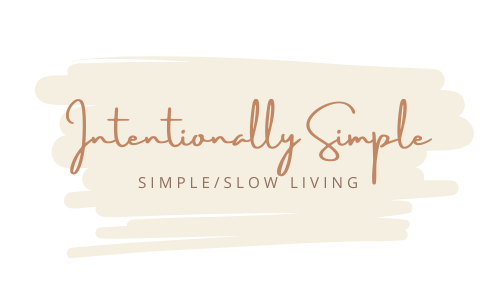There’s something quietly electric about the way neighbors share a pot of tea in a sun-warmed courtyard, stories drifting between generations, laughter blooming like wildflowers. That’s ubuntu lifestyle in action living in rhythm with others, placing connection and care at the heart of everyday routines.
In Southern Africa, ubuntu philosophy is not just an idea, it’s a living, breathing culture. Today’s hustle-obsessed world often whispers that slowing down is dangerous, that “doing less” means falling behind. Yet ubuntu lifestyle flips that notion on its head: real strength lies in slowing together, caring deeply, and building lives anchored in shared presence rather than perpetual rush.
Slow living and simple living are often framed as modern lifestyle trends, but ubuntu shows us they are ancestral wisdom. The call to live slowly and simply is not about retreating from life it’s about being fully present in it. Ubuntu philosophy offers the reminder that stillness and community are not luxuries but necessities for thriving.
As Archbishop Desmond Tutu once explained, “I Am Because We Are”: The African Philosophy of Ubuntu. Those words capture not only the spirit of community but also the essence of slow living: we flourish by slowing down enough to see and serve each other.
The Golden Rule of Ubuntu
At the heart of ubuntu philosophy is the timeless truth: “A person is a person through other people.” This golden rule, part of the Zulu phrase Umuntu ngumuntu ngabantu, reminds us that we are never isolated individuals. Our identity, strength, and joy emerge from the connections we nurture.
Simple living becomes easier when we remember this rule. You don’t have to carry everything alone. By leaning into community, life slows down not because the tasks vanish, but because they are shared.
The Five Principles of Ubuntu
Ubuntu philosophy offers a natural bridge between ancestral wisdom and the modern slow living movement. Its principles echo the very same values found in minimalism, mindful living, and intentional simplicity.
-
Respect and Dignity
Every human being carries inherent worth. To live simply is to live respectfully choosing kindness over competition, listening instead of rushing past. -
Compassion and Care
Ubuntu invites us to extend empathy and gentleness. This mirrors slow living practices like cooking shared meals, gardening together, or pausing for heartfelt conversations. -
Shared Humanity
Our well-being is interconnected. The ubuntu lifestyle teaches that slowing down is not selfish, it is how we make space for others to thrive too. -
Community over Individualism
Slow living often resists consumerism and excess. Ubuntu philosophy does the same, placing collective joy and sustainability above individual accumulation. -
Mutual Responsibility
Living simply is not passive it’s an active commitment to choices that reduce harm and build community resilience. With ubuntu, responsibility is shared, turning obligations into togetherness.
These principles show us that simple living is not about deprivation but about abundance abundance of connection, meaning, and care.
Slow Living in Action: When Hustle Meets Ubuntu
Picture this: a working parent in Johannesburg racing to the office, they dread being late. Meanwhile, a neighbor knocks to borrow a cup of sugar, sparking a story about last night’s rain, then a gentle reminder: “Take a breath.” That pause, that small moment of connection, is ubuntu philosophy incarnate.
Or imagine a creative entrepreneur in Cape Town crafting handmade jewelry. She schedules her day by the tide, not the clock. She pauses mid-task to listen to a neighbor’s success, then returns to her work grounded, inspired, and less burdened by the frantic pace of being “always on.” That’s ubuntu lifestyle and slow living guiding her choices from how she works to how she rests.
These vignettes highlight what ubuntu adds to the slow living movement: simplicity rooted not just in personal well-being, but in collective flourishing.
The Science of Slowing Together
When you lean into community, your nervous system thanks you. Science shows that social connection lowers cortisol, your stress hormone, and boosts oxytocin, the so-called “bonding hormone.” That’s the physiological heartbeat of ubuntu philosophy slowing down with others doesn’t weaken you, it calms and strengthens you.
Think of your mind like a teacup filling up. Hustle culture pours more and more; soon the cup overflows, spilling stress, clutter, burnout. Ubuntu lifestyle says: pour out, share with others, refill in shared stillness, that’s how resilience grows.
Slow living researchers echo this. A 2021 study found that slower, intentional routines like family meals or mindful commuting improve both well-being and cognitive focus. Ubuntu shows us that when slowness is shared, its impact is magnified.
Ubuntu Philosophy Myths (Busted)
Myth 1: Ubuntu living means slacking off.
In reality, it’s deeply intentional. Tasks are shared, time is honored, and community efficiency replaces individual burnout.
Myth 2: It only works in small villages.
Slow living is possible in cities too. A NewYork apartment block where neighbors share food deliveries or a Cape Town co-working space where colleagues cook together are both ubuntu in action.
Myth 3: It’s passive or purely spiritual.
Ubuntu lifestyle is about practice walking groups, neighborhood gardens, slow meals under starlight. It’s simple living embodied in action.
Ubuntu in the Digital Age
Modern life is often dominated by screens, notifications, and endless scrolls. Yet ubuntu philosophy can serve as a compass for digital minimalism. If “a person is a person through other people,” then technology should enhance connection, not replace it.
Practicing ubuntu in the digital age might look like:
-
Choosing a phone-free meal so you can give full attention to your family.
-
Using social media to celebrate others’ milestones instead of comparing yourself.
-
Building intentional online communities that amplify ubuntu values sharing knowledge, supporting struggles, and celebrating wins together.
Ubuntu lifestyle offers a filter: does this digital tool draw me closer to others or isolate me further? If the latter, it’s a call to slow down.
For more on simplifying technology in daily life, explore Digital Native
Ubuntu and Global Relevance
Readers outside Africa often wonder: can I live ubuntu if I’m not African? The answer is yes. While ubuntu philosophy is deeply rooted in Southern African traditions, its principles resonate universally.
Globally, movements like hygge in Denmark (coziness and comfort) or lagom in Sweden (balance and moderation) echo slow living values. Yet ubuntu adds something uniquely powerful it centers not just individual well-being, but collective flourishing. It is not about “me finding peace” but about “us finding peace together.”
This makes ubuntu lifestyle a gift from Africa to the world: a human-centered, community-first lens that anyone can practice, whether you live in Paris, Nairobi, New York, or New Delhi.
Practical Ubuntu for a Slow, Simple Life
For a working parent: Instead of racing from school drop-off to the supermarket, invite another parent to walk with you. Turn a chore into a slow ritual of connection.
For a creative entrepreneur: Schedule tea breaks with friends. Let those pauses fuel your creative energy instead of draining it through endless scrolling.
For someone living in the city: Replace one rushed solo commute with a shared ride. Community laughter replaces stress, and the pace feels lighter.
Simple living is not about isolation but integration, every pause is an invitation to include others. That is ubuntu philosophy lived daily.
Bringing Ubuntu Lifestyle Into Your Day
– Start small: Greet your neighbor before you check your phone. Begin your day with connection, not distraction.
– Slow down together: Cook a communal meal, invite someone to walk with you, or tend a small garden with a friend.
– Check in, not just check off: Before your next meeting or errand, ask how someone else is doing.
– Protect space for presence: Block off no-screen evenings to be with family or friends. Slowness becomes sacred.
Why Ubuntu Philosophy Matters for Simple Living Today
In a world where hustle is glorified and digital noise never stops, ubuntu lifestyle invites a different way: connection, presence, mutual care. It beckons us to slow down not to stop, but to move with purpose and love, rooted in real communities.
Ubuntu also shows us that slow living is not just for the privileged. A simple shared meal, a kind gesture, a moment of stillness with a neighbor these are available to anyone. They prove that less can indeed be more when it’s shared.
For a deeper dive, explore Money Made Simple to slow down your financial choices with intention.
Your Invitation to Slow With Others
So here’s your gentle challenge: this week, try one micro-shift toward ubuntu lifestyle. Step outside before reaching for your devices. Share lunch with a colleague instead of eating alone. Walk slowly with a neighbor.
Notice how your nervous system settles, how your days feel less rushed, and how community softens the edges of stress. That’s ubuntu philosophy in motion. That’s slow living at its most human.


